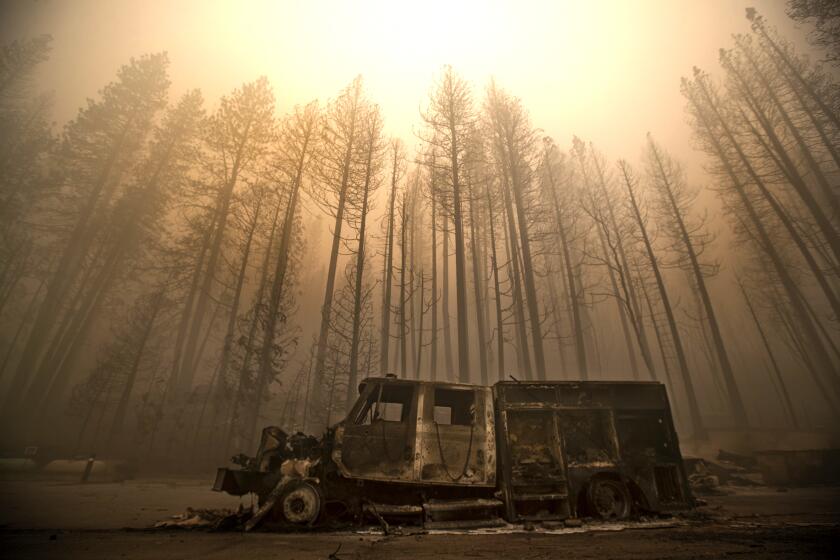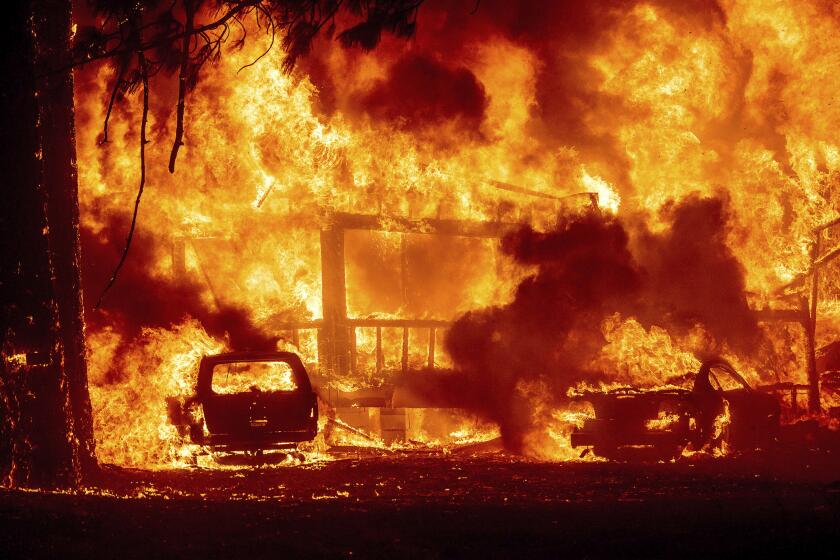‘We’ve lost everything’: Survivors reeling as downtown Greenville leveled by Dixie fire
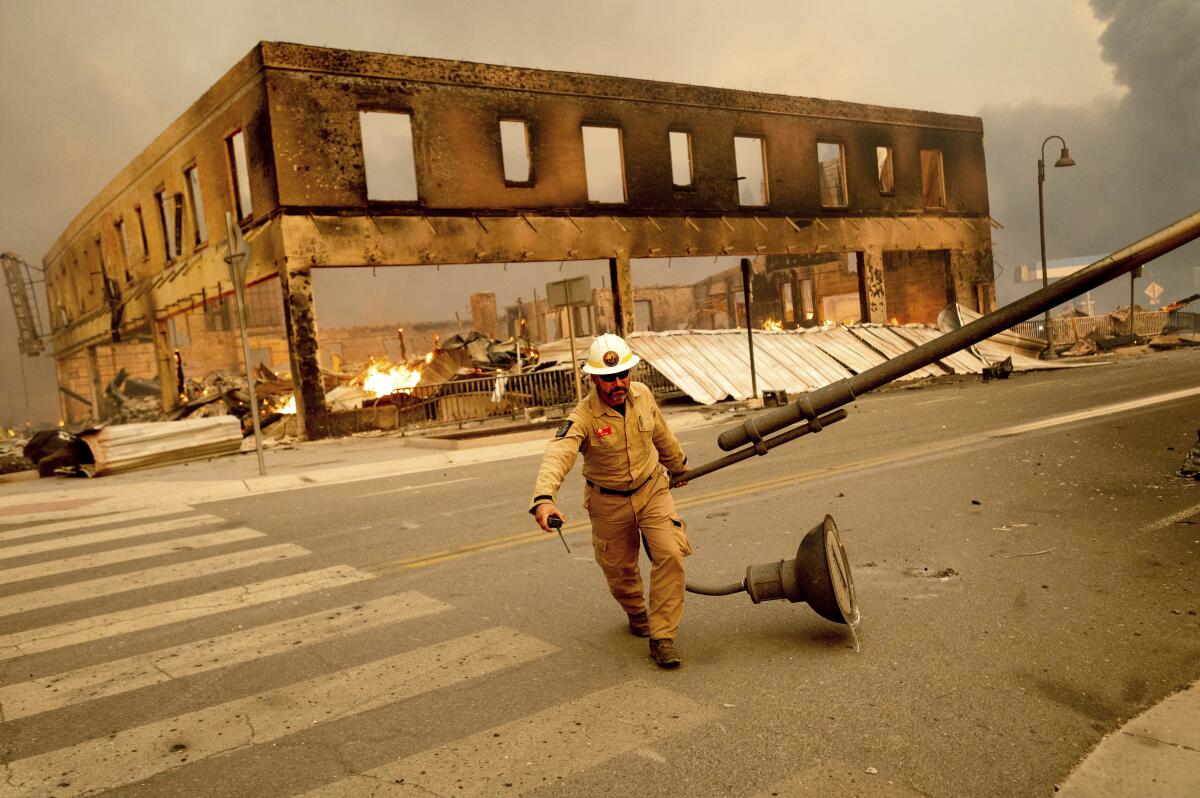
- Share via
The destruction of large swath of the Gold Rush town of Greenville as the Dixie fire swept through left residents stunned Thursday and mourning all that has been lost.
Kevin Goss, a Plumas County supervisor, lives outside of Greenville, in Taylorsville, but has had a pharmacy in town since 1988. The pharmacy was the oldest building in town and dated back to 1860.
On Thursday, Goss said residents and business owners were doing damage assessment. Because the fire is still active, no one is getting near Greenville.
Early in the week, the Dixie fire continued to grow and the River fire burned homes north of Sacramento.
“My pharmacy is gone, I know that,” said Goss, who said he was in escrow to sell it to another pharmacy. “The whole historic downtown area is gone.”
The feeling among community members, he said, is “shock. Just shock.”
He estimates the town’s population at about 1,200 people. Goss said a mandatory evacuation order had been lifted on Tuesday and that people “were just repopulating Greenville when this thing just broke loose.”
“We just weren’t sure what was going on up in the mountain ... or else we probably wouldn’t have let people back into town,” he said. “We thought it was taken care of, we thought they had it controlled. They didn’t.”
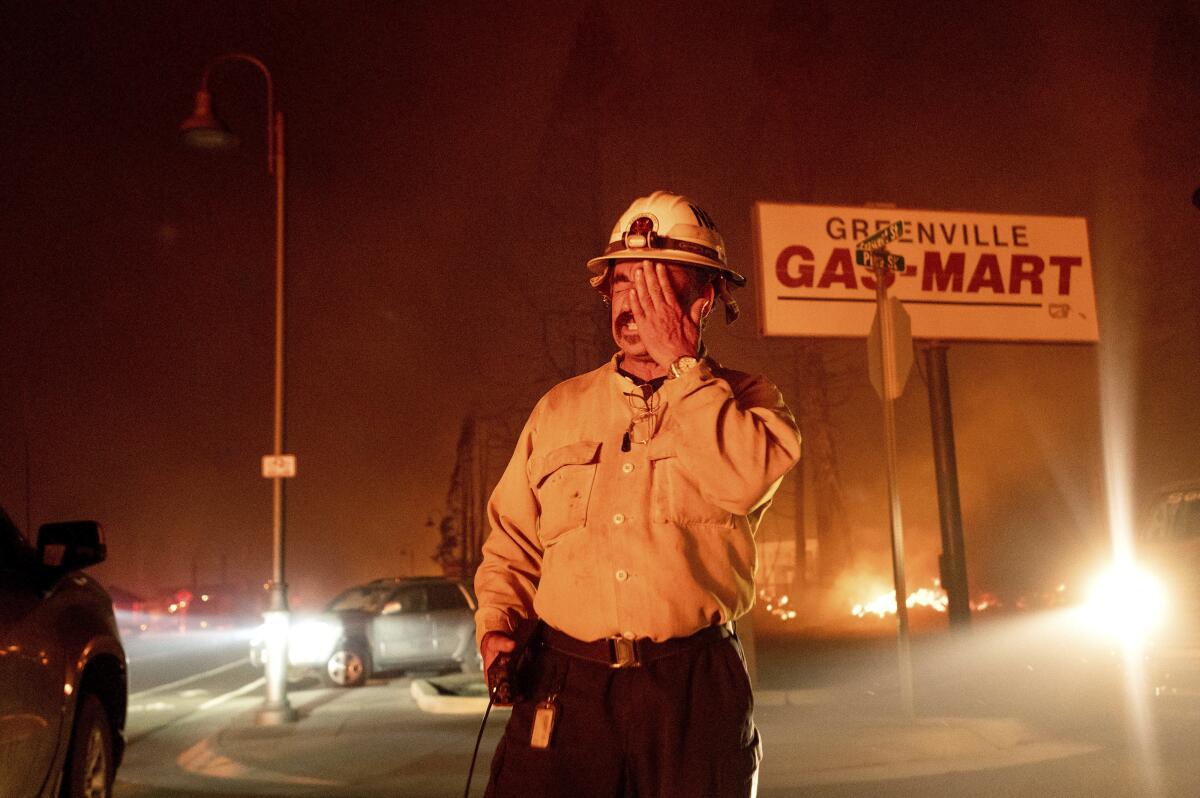
Goss had gone into town on Wednesday and saw the fire jump off the hillside, raining sparks and embers around Greenville.
“That’s when the fire came to town,” Goss said. “It came through there like a blowtorch.”
He and his son went around to a few homes and told residents to get out “because the whole thing is going to go up.”
“We pretty much knew there was no saving it,” he said.
Another day of dangerous winds is on tap as the Dixie fire continues to grow and the River fire burns homes north of Sacramento.
Curtis Machlan alternated between past and present tense as he spoke about the town.
The 58-year-old moved to the town in 2007, and it’s where he met his now wife Kimberly, who had moved to the area in the late 1990s from San Jose.
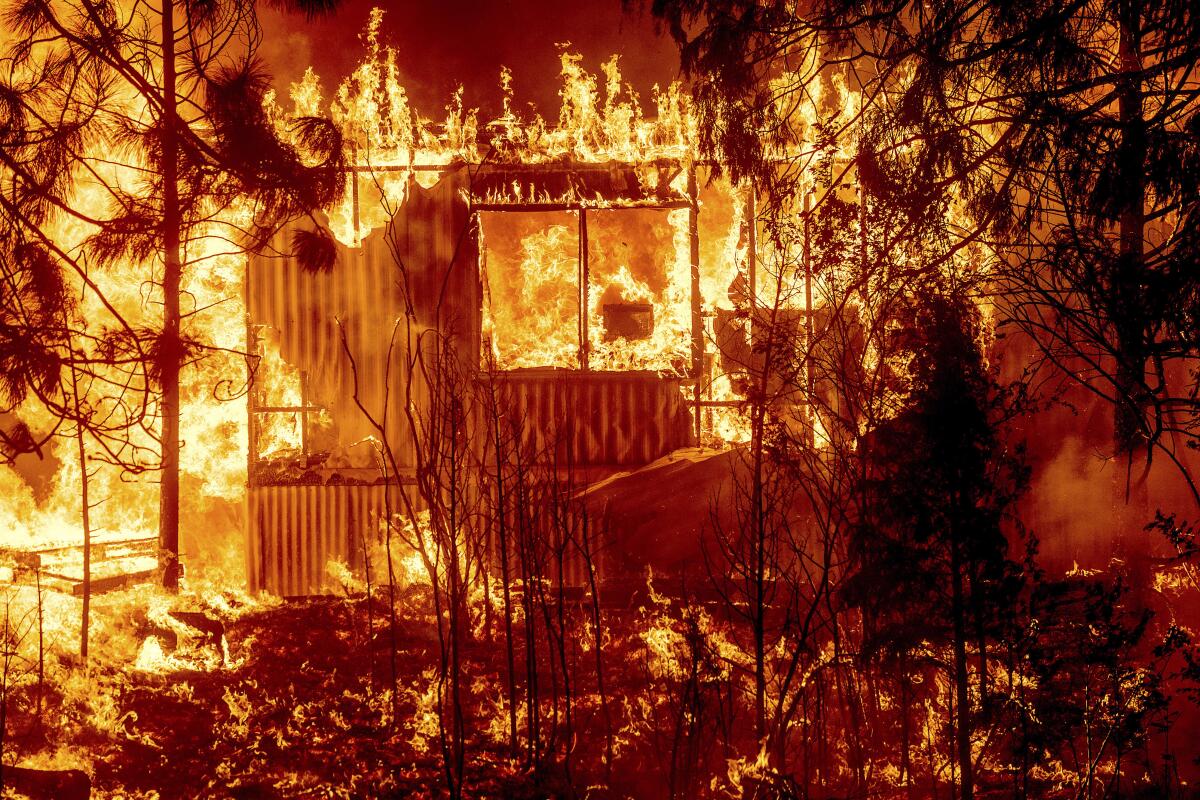
He grew emotional as he described a town with residents of varying political beliefs but who pitched in to help one another regardless. It was a town where “everyone knows everybody.”
“We’d go to the local grocery store and sometimes it would take over an hour to get out, just to run in and get a gallon of milk or something, because we knew everybody.”
Since 2015, he and his wife would spend six months living on a sailboat in the Caribbean and six months in Greenville. They would leave town in December or January and return in June.
They were out of the country in February of 2020 and because of the pandemic decided to stay there instead of risk flying home. It’s where they started hearing about the Dixie fire.
“I had a feeling that this was going to happen this year,” Machlan said, citing the driest conditions he’s ever seen in the Sierra Nevada. “After Paradise went up a couple of years ago, it was really just a matter of time until it happened to more mountain communities.”
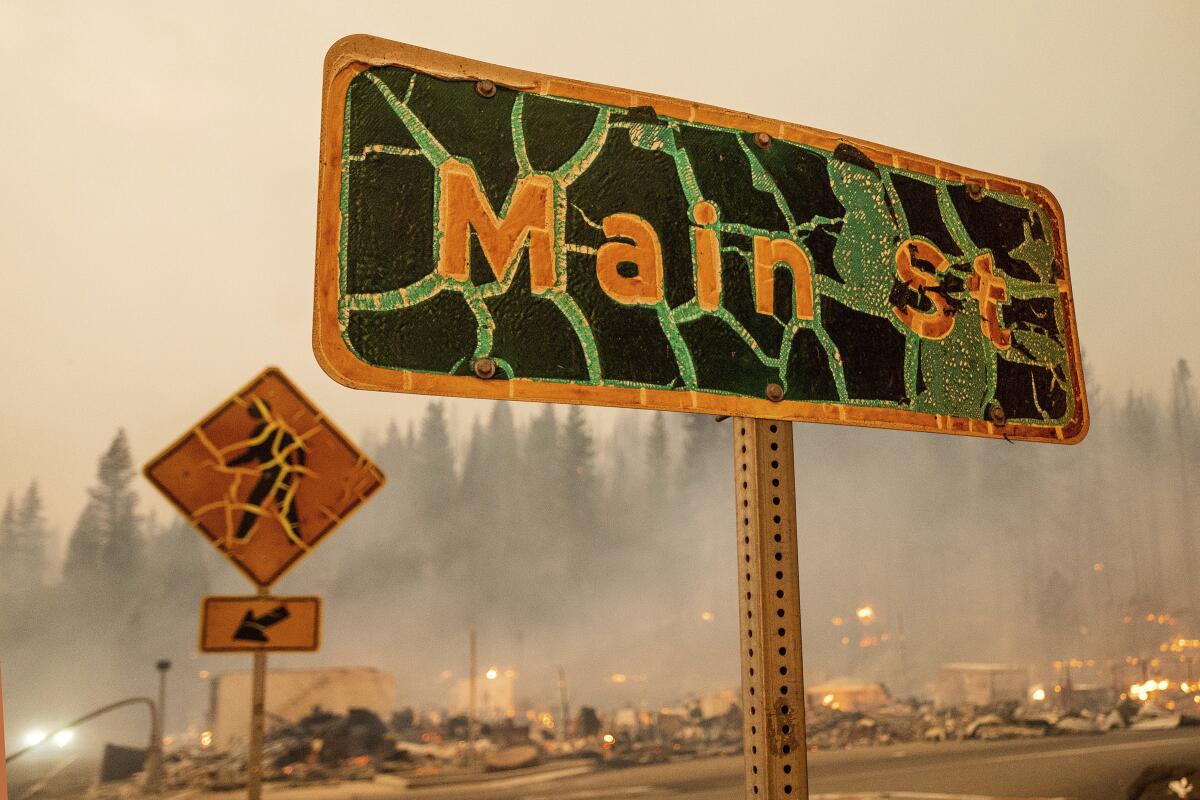
“It’s the climate change,” he said. “Everybody who didn’t believe it in Greenville is now a climate refugee.”
Machlan said they spoke to his wife’s family in Chester, a town 20 miles north of Greenville that was under imminent threat itself Thursday. The family of his wife’s daughter, who had just a month ago moved into a home they were remodeling in Greenville, had their house burn down.
The library in town where his wife once worked also burned down. The building that housed the auto parts store where Machlan once worked was gone.
On Thursday morning, he said he was 95% sure his home had burned down because of its location within the fire line.
Later that morning, he heard from a friend who stayed and tried to fight the fire in a pasture at the northwest end of the town. Machlan’s house was gone, he said, leaving only a pile of ash. Neighbors’ homes were also gone.
The friend described it as a “moonscape.”
“It’s tragic for so many people,” Machlan said. “Even just with that sense that I knew it was coming, it’s like losing a loved one. Like a death of a loved one.”
All of their clothing and belongings were left behind in their home when they left the country. Family heirlooms, including an old Winchester .22 rifle that belonged to his great-grandfather, were gone, he said. The cars they left parked at the house likely are too, he said, along with a motorcycle in the garage.
“We’ve lost everything,” Machlan said.
After previous fires in Indian Valley, he said, “the people always come back and the community is resilient and strong.” He’s already seen people online who have said they’ll “build back stronger than ever.”
“I personally think it’s going to be a little harder, especially if you look at Paradise. When you lose the entire town area, that’s different than losing a few dozen homes.”
More to Read
Sign up for Essential California
The most important California stories and recommendations in your inbox every morning.
You may occasionally receive promotional content from the Los Angeles Times.

